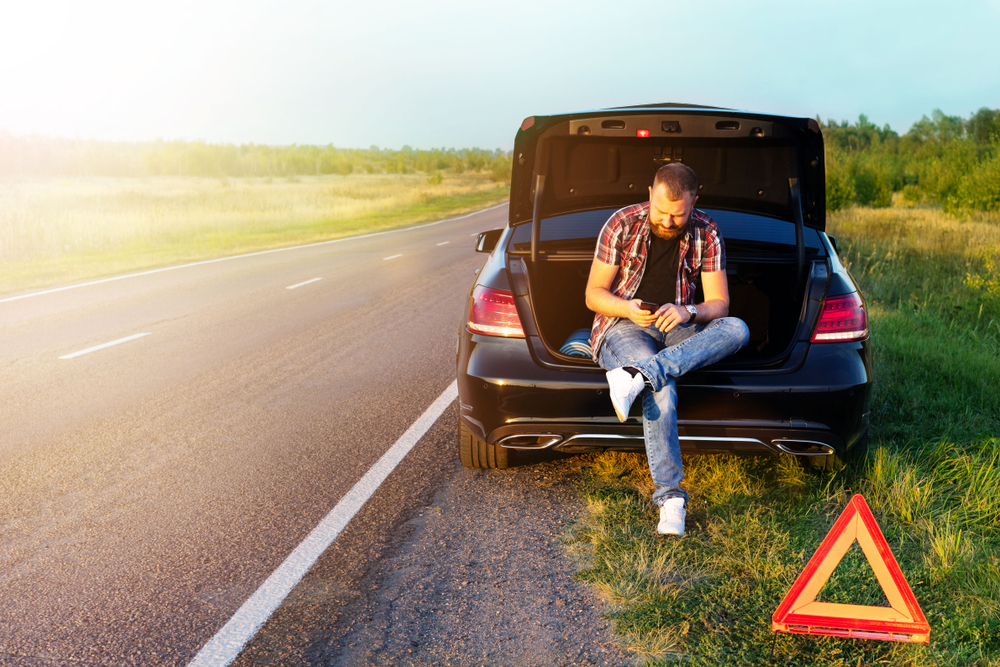How to Pack an Emergency Preparedness Kit for Your Car
Ideally, when traveling by car, you will leave your location and drive to your destination without incident. However, in some cases, especially with the perils and dangers that winter driving presents, you aren’t guaranteed a safe journey in all cases. While the mishap that keeps you from reaching your destination might be a fender bender, it could also include having car trouble of some sort that leaves you stranded on the side of the road. Therefore, it’s imperative for your safety to create an emergency preparedness kit that you can keep inside your car at all times.
General Tips For Winter Driving Safety
Before delving into the specifics of what to put into your winter car kit —ensuring you survive a roadside emergency, allowing you to get the alternative transportation, medical help or tow— it’s important to make sure your phone is fully charged, your tank is full of gas, and you have fresh antifreeze before hitting the road. Also, be weather aware and stay abreast of all the forecasts pertaining to winter weather. Ideally, before winter hits, it’s a good idea to have your car serviced to reveal any potential problems that might leave you stranded.
Compiling Your Emergency Preparedness Kit
Ideally, you won’t have to use any of the items within the emergency kit you prepare. However, if a situation presents itself where you are in need of these items, you will be thankful to have them on hand:
- Jumper cables: These are vital if your battery dies, and you are unable to get it going again.
- External/backup battery: Use for your phone allowing you to make a call if your phone dies.
- Flashlight: Plus extra batteries and/or a hand crank flashlight. You don’t really think about it, but it is overwhelmingly dark on the roadways, especially back roads, on winter nights. Make sure you have a way to illuminate the situation if necessary.
- First-aid kit: Use in case you are stuck waiting on a ride or become injured trying to fix your car or in an accident. Items to add to this list include bandages, Tylenol, heat packs and antiseptic.
- Bottled water: You need to have bottled water on hand whenever you travel in the winter. Keep in mind if you are stranded, you can go a few days without eating, but hydration is crucial for your survival.
- Reflective warning triangles or road flares: These will alert other drivers that your car is stalled out, preventing further accidents. It can also indicate you need help.
- Rain poncho: If you have to work on your car, and it is raining or snowing heavily, you will appreciate the protection provided by a good poncho, fashion statement notwithstanding.
- Non-perishable snacks: While you can survive without food for a few days, you will grow weak without nourishment. Therefore, it’s a good idea to have some non-perishable snacks on hand to sustain you.
- Personal hygiene materials: If you are stuck, consider the items, including medications you want to have on hand and make sure they are included in your emergency pack.
Being based in the Midwest, our team at Arnold is aware of the harsh, cold wintertime can bring. Therefore, we recommend adding the following items to your winter preparedness emergency kit, especially when there is a risk for inclement weather in the area:
- Blanket: For obvious reasons, if you are stuck in freezing temperatures, you will want a blanket on hand to maintain your body temperature as good as you can.
- Ice scraper: You need to be able to see out your window, which means you need a good ice scraper on hand.
- Salt or sand for traction: Having salt or sand with you can make the difference between being stuck overnight or getting back on the roadway and on your way to your destination.
- Gloves and socks: Wear to keep your body temperature from dropping.
- Hand warmers: Keep your hands warm as you wait for help to arrive.
Bottom Line: Preparedness is the Name of the Game
Don’t forget, always have your insurance information on file as well as your license and roadside assistance cards. If you have your emergency kits and these things on hand, you can drive with ease knowing it will make a stressful situation less so and in some cases prevent a potential emergency situation from occurring in the first place.



